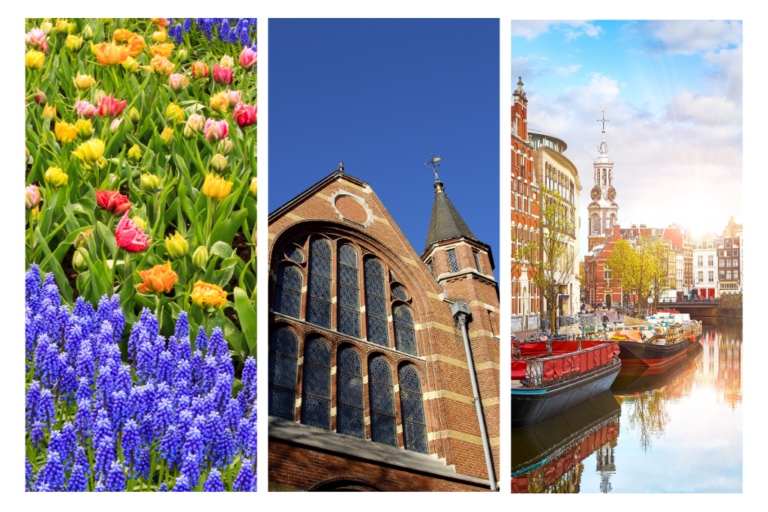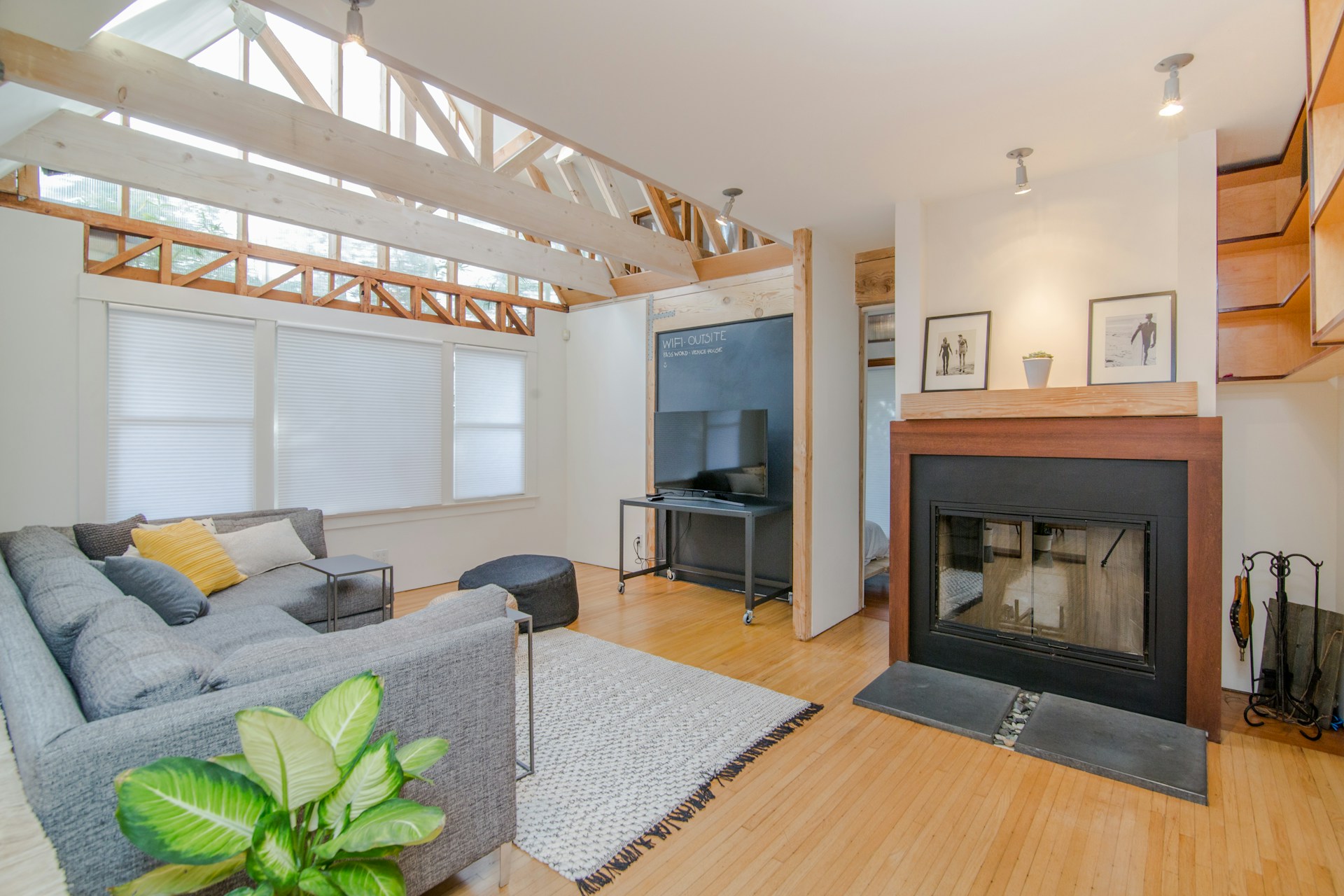What is it like to live in the Netherlands? Pros & Cons
Discover what it’s like to live in the Netherlands: from quality of life and climate to housing, salaries, and key tips before moving.
What is it like to live in the Netherlands? Life here is about more than cycling everywhere or cloudy weather. It is a place where everything feels organized, remote work is a real possibility, and daily routines are easy to navigate. Even though Dutch is the official language, most people speak English fluently, which makes settling in much simpler whether you are studying, working, or just exploring the country.
That said, moving to the Netherlands does not automatically make everything easy. It is helpful to have a clear idea of what everyday life is like, including how the healthcare system works, what paperwork you will need when you arrive, and what housing might cost. Knowing from the start what makes life here comfortable and what might be challenging will help you make smarter choices and feel confident when you settle in.
Quality of life in the Netherlands
Living in the Netherlands means adjusting to an organized way of life, where getting around, studying, or working becomes easier thanks to well-run services. If you are planning to stay for a while, it is important to understand what daily life is really like, from education and healthcare to housing costs and internet access. All of these factors shape your experience, especially if you are looking for stability and a more practical way of living.

Education
If your plan in the Netherlands involves studying or moving with children, education is a big advantage. Dutch universities are among the highest ranked in Europe and have a strong international focus. Many offer programs in English in fields such as technology, sustainability, social sciences, or business. Some of the most well-known institutions include the University of Amsterdam, the University of Groningen, and TU Delft.
If you are looking for something more hands-on, there are options as well. The MBO system, which combines classroom learning with practical training, can help you gain local experience and start building your career from the very first year. This can be a great option if you plan to stay for a while and want to begin your professional life in the country.
Safety
Living in the Netherlands gives you a sense of safety right away. Streets are bright and orderly, and it is normal to see people walking or cycling alone at night without worry. According to the OECD, more than 83% of residents feel safe walking alone after dark, a figure well above the European average, and that sense of security is reflected in the overall atmosphere.
Riding a bike is a big part of the everyday feeling of safety in the Netherlands. The bike paths are carefully designed, crossings are wide, and there are plenty of places to park. Biking here is more than just a way to get around. It fits seamlessly into daily life and feels simple, comfortable, and safe.
Economy and wages
If you are considering moving to the Netherlands, it helps to know that the economy is stable and a regular salary is usually enough to live comfortably. In 2025, the minimum wage is about $2,400 a month, which covers basic expenses but does not leave much extra. There are good opportunities for people with experience in fields like technology, healthcare, logistics, or sustainability.
One piece of advice worth keeping in mind is to take a close look at what you will earn and what it actually costs to live in the city you plan to move to. There can be a big difference between places like Amsterdam and smaller towns. If you start with a clear idea of the numbers and realistic expectations, you can live comfortably without unnecessary stress.
Cost of living
Living in the Netherlands can be expensive, especially when it comes to rent. In bigger cities like Amsterdam or Utrecht, prices are high and finding a furnished or well-located place can take time. Many people choose shared apartments or temporary housing while they search for something more permanent. The best cities to live in the Netherlands that offer a better balance between cost and quality of life are Eindhoven, Groningen, or Arnhem.
Public transport in the Netherlands is efficient and comfortable, but it is on the expensive side. Taking the metro every day without a pass can quickly add up. That is why many people prefer cycling. It is cheaper, fits the Dutch way of life, and the city infrastructure makes it safe and convenient.
Healthcare system
Healthcare in the Netherlands is known for being reliable and well organized. Even though it is a private system, it is tightly regulated to ensure quality care. As soon as you register as a resident, even for just a few months, you must have basic health insurance. It usually costs around $130 to $145 a month and covers essential services like visits to a general practitioner, emergency care, and basic medications.
Primary care is usually quick and accessible, but you often need to book ahead to see a specialist. The system is not designed to handle everything immediately, but it is reliable, transparent, and well organized. Medical staff are highly trained, and in most cases, communicating in English is not an issue.
Internet and digital life
Whether you work online, study, or just need a reliable connection, the Netherlands has you covered. The country has one of the best digital networks in Europe, with speeds exceeding 100 Mbps even in rural areas. Providers like KPN, Ziggo, and T-Mobile offer flexible plans for both short-term and long-term stays.
If you want to be connected right away, Holafly offers eSIMs with unlimited data, no physical SIM card or local contracts needed. They can be set up in just a few steps, letting you go online as soon as you arrive without relying on WiFi or dealing with local providers. It is a convenient option if you work online, study, or just need to stay connected while getting settled.
Important: If you are a frequent traveler and want to stay connected without worrying about expensive roaming or looking for a new SIM at every destination, Holafly’s subscription plans are for you. With a single eSIM, enjoy internet in more than 170 countries for a fixed price and no surprises on your bill. Travel without limits and connect easily and securely! 🚀🌍

Advantages of living in the Netherlands
There are many things that make settling in and enjoying daily life in the Netherlands easier, especially if you are coming for work, study, or just to experience living here for a while.
Open and tolerant culture
The Netherlands is a diverse and welcoming country for newcomers. English is commonly spoken, especially at work, in schools, and among younger people, so you do not need to know Dutch to start fitting in. People are generally open to different cultures, lifestyles, and perspectives, which helps you feel at ease from the beginning, even if you are arriving alone or without a support network.
Work-life balance
In the Netherlands, workdays tend to be shorter than in many other European countries, and there is a strong respect for personal time. You are not expected to stay online after hours or bring tasks home. Your day ends on schedule, leaving time to relax, take a walk, enjoy the outdoors, or just rest. If you are looking for a calmer pace and better work-life balance, you will feel the difference right away.
High standard of public services
Cities in the Netherlands are well kept, clean, and easy to navigate, with public spaces designed for people to enjoy. Parks, libraries, and community centers are all well maintained. This creates a sense of order and comfort that makes settling in much easier.
Green spaces integrated into urban life
Green spaces, canals, and pedestrian streets are everywhere and really add to the charm of Dutch cities. You can easily go for a walk, exercise, or just enjoy being outside without needing to go far.
Disadvantages of living in the Netherlands as a foreigner
While life in the Netherlands has many advantages, there are some challenges that can take a little getting used to. Being aware of them from the start helps you stay calm and avoid unnecessary surprises.
Unfriendly climate if you come from sunny places
The weather can be a downside, as much of the year is cloudy, it rains often, and temperatures are low, especially from November to March.
Adjusting can be tricky if you come from a warmer climate, but over time it becomes easier. Staying active and going outside, even when it rains, helps you adapt without even realizing it.
Bureaucratic procedures that require patience
From the moment you arrive, you will need to take care of things like registering with the municipality, getting a BSN number, and arranging health insurance. The process is well organized, but if you don’t speak Dutch, some steps can feel slow or a bit confusing. The good news is that more and more services are available in English and online, which makes everything much easier.
Social integration takes time
Even though it is a city with a polite and respectful culture, making friends at first can be challenging. Dutch society can feel reserved, especially in settings outside of work or school.
We recommend participating in local activities, volunteering, or joining exchange groups to help you settle in more quickly.
Housing is expensive and difficult to find
Finding a place to live can be tricky. In bigger cities like Amsterdam, Utrecht, or Rotterdam, rents are high and options are scarce, especially for furnished or short-term rentals. Many people start out by sharing an apartment or move to smaller cities, where it is easier to find something affordable without spending a fortune.
Frequently asked questions about living in the Netherlands
Yes, particularly in cities like Amsterdam or Utrecht. A studio apartment typically costs around $1,300 to $1,750 per month, and a one-bedroom in the city center often runs above $1,950. It is important to keep these expenses in mind when planning your move.
The Netherlands is very safe. You can walk or cycle around freely, even at night. Streets are well lit, everything runs smoothly, and there is an immediate sense of security from day one.
Yes, it is very simple. If you want to stay connected right away without relying on WiFi or getting a local SIM, an eSIM like Holafly’s is a great option. You can activate it in minutes and enjoy unlimited data as soon as you arrive, with no extra steps.
Yes, if you have a residence permit or EU citizenship. Amsterdam has plenty of job opportunities in technology, creative fields, education, healthcare, and tourism. In many international roles, English is enough to get by.
Yes, but you have to get health insurance sorted in your first month. It usually costs around $130 to $145 per month and covers general doctor visits, emergency care, and basic medications.





 Language
Language 


















 No results found
No results found







